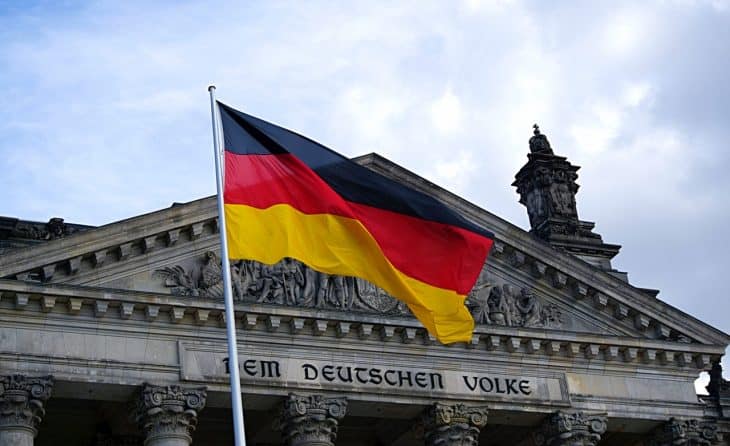
Germany, known for its rich history, cultural contributions, and technological innovations, is one of the most influential countries in Europe. From iconic landmarks like the Brandenburg Gate to a thriving automotive industry, Germany boasts a diverse landscape of achievements. This article dives into 100 fascinating facts about Germany, covering its history, geography, traditions, and modern developments. Whether you’re interested in German cuisine, famous figures, or the country’s role on the global stage, these facts will give you a deeper understanding of what makes Germany so unique.
- The area of Germany spans 357,022 kilometers squared.
- The current population of Germany stands at 83,808,340.
- In 2019, the estimated GDP of the country per capita is $52,559.
- Germany has 16 constituent states in its area.
- The history of Germany dates back as far as the 19th century.
- Germany is located in Central and Western Europe.
- Germany is the second most populated country found in Europe.
- The official language of Germany is German.
- Germany’s capital is the city of Berlin.
- The official currency of Germany is the Euro.
- Germany’s national anthem is titled “Deutschlandlied” which translates to ‘Song of Germany’.
- The country of Germany is also known as the Federal Republic of Germany.
- Rhine-Ruhr is the largest metropolitan area found in Germany with over 10 million residents.
- Germany is a member of the United Nations, The G7 and G20, and the OECD.
- Germany’s financial center is located in Frankfurt.
- Berlin is the largest city found in Germany.
- People in Germany drive on the right side of the road.
- The Germanic ethnic groups are called Germans, Germani, or Deutsche.
- Germany borders Denmark, Poland, the Czech Republic, Austria, Switzerland, Luxembourg, Belgium, France, and as well as the Netherlands.
- Germany is well-known for its strong economy.
Germany Facts Infographics
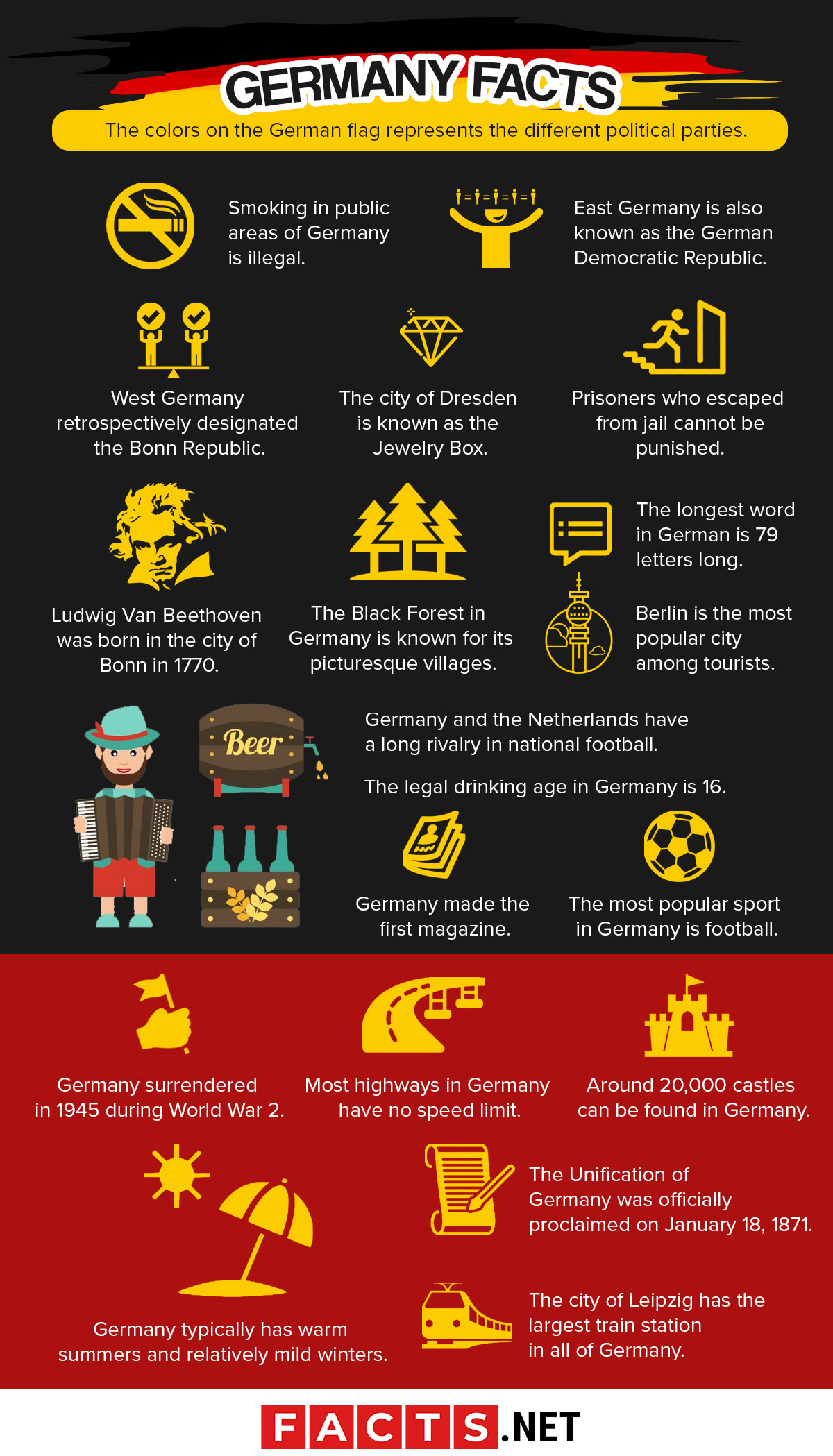
The colors on the German flag represents the different political parties.
In the 1840s, the German Association used these three colors on the German flag to symbolize the movement against the Conservative European Order. This order was established after the defeat of Napoleon.
The colors on the German flag are associated with freedom and unity. The color black represents the centrist party, red represents the republican party, and lastly gold represents the democratic party.
East Germany is also known as the German Democratic Republic.
This state existed between the years 1949 to 1990 and was a part of the Eastern Bloc during the time of the Cold War. In the English language, this state is commonly referred to as the Communist State that described itself as a socialist workers and peasants state.
The economy of East Germany was centrally planned and was also increasingly state-owned. Rather than setting prices based on supply and demand, the government subsided and set prices for housing, services, and basic goods.
West Germany retrospectively designated the Bonn Republic.
The western part of Germany was a part of the Western Bloc and was created during the Allied occupation in Germany after the second world war. The official name of West Germany was adopted in the year 1949 and has been unchanged since then.
In 1974, the leaders of West Germany also recommended using the full name in publications from then on. Since then, publications have avoided using the abbreviated form of the West German Federal Republic.
The retail website, Amazon.com is one of Germany’s top overseas retailers.
As of 2017, Amazon accounts for nearly 50% of Germany’s online retail and has generated over $17 billion in sales. This may be due to the website’s easy to use user interface and its known reputation all across the globe. Amazon is considered a top favorite among German citizens and is often the first choice when it comes to online retailing.
The Black Forest in Germany is known for its picturesque villages.
Located in Southwest Germany, this forest is located on a large mountain range and is a popular vacation spot for both tourists and locals. The Black Forest is home to the famous Cuckoo clock and as well as world-renowned thermal spas.
The area also features numerous destroyed military fortifications which ruins have lasted since the 17th century. The Black Forest is also known for its ore deposits that led to heavy mining in the local economy.
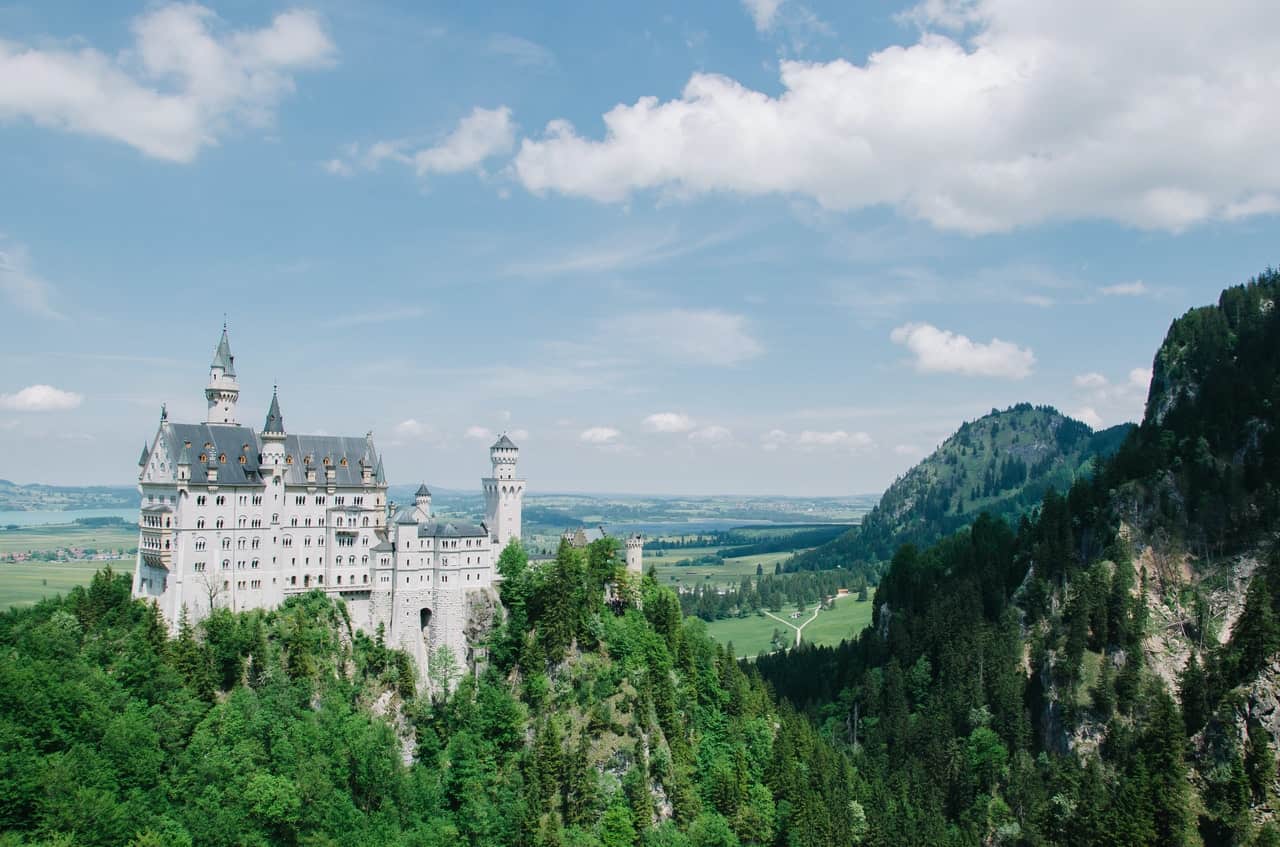
The city of Dresden is known as the Jewelry Box.
Dresden is the central city in the German state of Saxony and is the 12th most populated city in the country. This city has a long history as the capital and place of royal residence for the Electors and Kings of Saxony.
The Jewelry Box nickname is given to the city due to the baroque and rococo city center. This city is also one of the most visited in Germany as it accumulates around 4.7 million overnight stays annually.
Berlin is the most popular city among tourists.
Berlin is the capital of Germany and its tourism industry serves as the most important industry in the city. Berlin has established itself among the top three desirable destinations in all of Europe. Berlin is also considered relatively cheap to visit among tourists and therefore is favored over other cities in Germany.
The city of Trier is known for its well-preserved Roman and Medieval buildings.
Trier is located near the banks of the Moselle river and was founded in or before 16 BC. This makes it the oldest city in Germany with several architectural and archeological structures as its main attractions.
The city of Trier is also known as the birthplace of Karl Marx who is honored with a statue in the city. The Karl Marx House museum is also dedicated to the father of modern socialism and communism.
The Bundesnachrichtendienst (BND) is a German Federal Intelligence Service.
This German Intelligence agency is directly subordinated with the office of the chancellor. The BND headquarters is located in Berlin and is also one of the world’s largest intelligence headquarters.
Apart from its main headquarters in central Berlin, the agency also has 300 other locations within Germany and as well as in other countries. The agency was also founded in 1956 during the time of the Cold War as the official foreign intelligence agency of West Germany.
Ludwig Van Beethoven was born in the city of Bonn in 1770.
Beethoven is a world-famous German composer and pianist best known for his classical pieces such as Fur Elise, Fidelio, and A Song of Joy. He is also one of the most admired composers in Western Music’s history. The musician spent most of his childhood in Bonn, Germany until he left the city for good in 1792 to work on his music.
Germany and the Netherlands have a long rivalry in national football.
The rivalry between the two countries began when the Dutch had lost the 1974 FIFA World Cup to West Germany during the finals. Since then the rivalry between the two teams has grown to become one of the best known international football rivalries in the world.
Both team’s nations have also been included in the top-ranking football teams in Elo Ratings. For the Dutch, the rivalry origins are primarily based on the anti-German sentiment that resulted in the second world war during the German occupation.
The city of Nuremberg is the second-largest city in the German Federal State of Bavaria.
Nuremberg holds several higher education institutions within the city. The city is also known for being the site of Major Nazi rallies that occurred in the past.
Nuremberg is most famous for its historical landmarks such as the imperial castle and the walled Old Town. The city also symbolizes an important commercial hub during the middle ages and onward.
The legal drinking age in Germany is 16.
In Germany, teenagers may begin drinking beer when they turn 16 years of age. However, they must wait until their 18th birthday to be legally allowed to drink spirits and harder alcoholic drinks.
Germany also allows minors to consume fermented alcoholic beverages only when they are under the supervision of a legal adult. This is to prevent alcohol abuse among minors and keep their health safe.
Germany typically has warm summers and relatively mild winters.
During the winter, prolonged periods of frost are considered rare. Rainfall is also present throughout the year with its peak occurring during the months of summer.
The average high temperature in Berlin is approximately 23 degrees celsius and typically range around this temperature on most days.
Germany surrendered in 1945 during World War 2.
During this time, Germany signed an unconditional surrender document on May 7 at 2:41 in the morning. The document was signed by Chief-of-Staff of the German Armed Forces High Command, General Alfred Jodl.
This took effect the following day and ended the European conflict of the second world war.
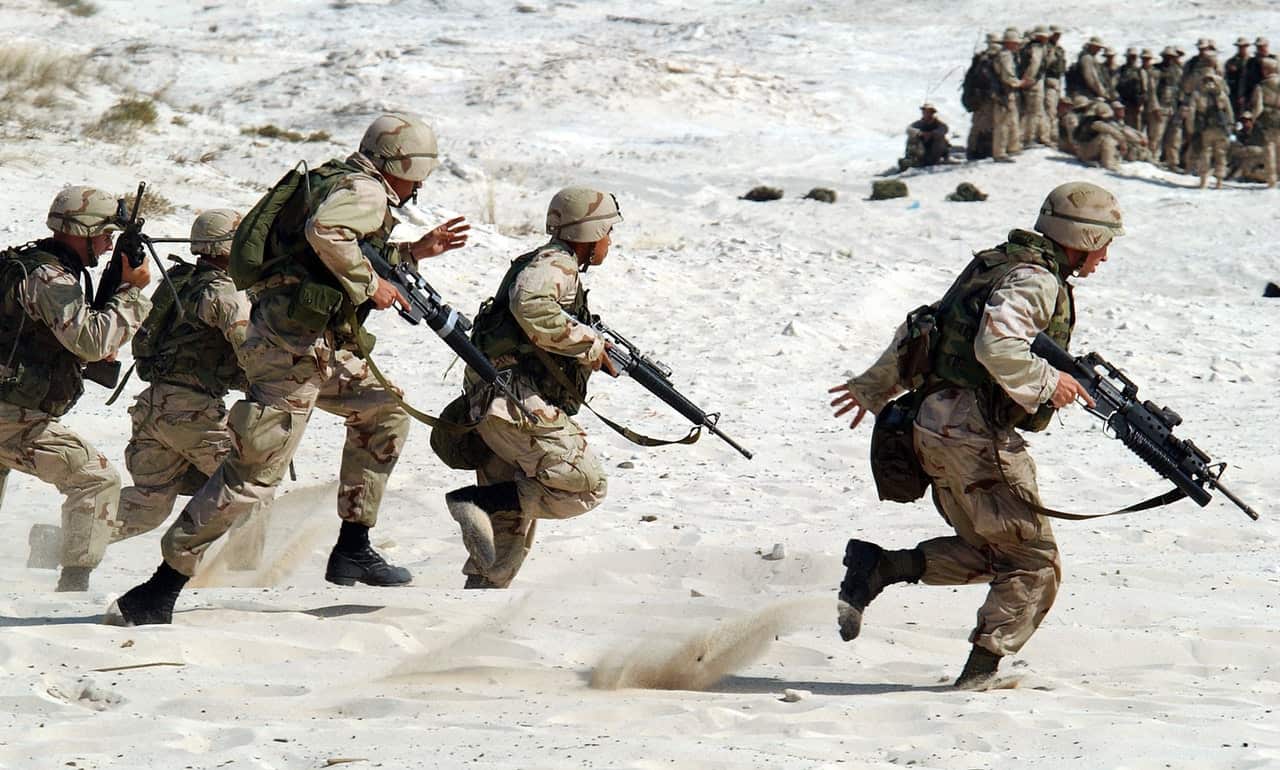
The most popular sport in Germany is football.
In Germany, the football league is called Bundesliga and is known for being one of the most successful leagues found in Europe. Every weekend, tens and thousands of German fans support their favorite football teams and cheer them on during their weekly matches.
The most famous footballer in Germany is Franz Beckenbauer, who was also the manager of the German Nationalmannschaft. He is also the only German footballer known for having won the World Cup as both a player and a manager for the team.
Around 20,000 castles can be found in Germany.
Most of the castles found in Germany date back from hundreds of years ago. They are also one of the most popular sites for tourists for its rich history and historical monuments.
In the past, castles in Germany were often built at strategic points such as mountains or areas with important trading routes. Over the centuries, the architecture for Germany’s castles has changed due to enemies destroying previously established ones.
The Unification of Germany was officially proclaimed on January 18, 1871.
The German princes proclaimed the founding of the German Empire after the defeat of the French in the Franco-Prussian war in 1871. This unification means formally turning Germany into a politically and administratively integrated nation.
Most highways in Germany have no speed limit.
Around 70% of German highways have no speed limit of any kind. The government of Germany has also rejected the prospect of imposing a speed limit on the stretches of the highway that do not have one. However, an advisory speed limit of 130 kilometers per hour applies to these unrestricted highways.
The city of Leipzig has the largest train station in all of Germany.
The Leipzig Hauptbahnhof, or also known as the Leipzig Main Station is a central railway terminal that spans 83,460 square meters wide. It is also considered the largest railway station in Europe measured by the floor area.
The Leipzig Main Station was first established in 1915 and has numerous connecting train lines through Germany, serving more than 120,000 passengers daily. It was ranked as the best railway station in Germany and the 3rd best in Europe in 2020.
Germany made the first magazine.
In 1663, Germany launched the first-ever magazine in the world. This publishing featured literary and philosophical content and was called the Erbauliche Monaths Unterredungen.
The longest word in German is 79 letters long.
The longest German word is Donaudampfschiffahrtselektrizitätenhauptbetriebswerkbauunterbeamtengesellschaft which translates to Association for Subordinate Officials of the Main Maintenance Building of the Danube Steam Shipping Electrical Services in English. This word also holds a Guinness Book of World Records title for being the longest word in the German language.
Smoking in public areas of Germany is illegal.
The German government has banned smoking in public areas within the country. This includes locations such as bars, parks, and restaurants. Smoking is also banned within the premises of public youth services such as daycare centers, and schools.
Oktoberfest is the largest beer festival in the world celebrated in Munich, Germany.
In Bavarian Culture, Oktoberfest is considered an important tradition that has been celebrated since the year 1810. The tradition began in Munich and is celebrated in late September until early October; roughly around two weeks.
Today, several other large cities all over the world celebrate this event with food, music, and parades. This tradition celebrates the marriage of the crown prince of Bavaria who was later known as King Louis I.
Traditionally, German brides would wear black dresses instead of white.
In 1885, a Bated-Wurttemberg tradition stated that all women should wear black dresses and gowns to church for their wedding. However, white accessories to lighten up the dress were allowed such as a white veil, gloves, and bouquet.
The groom also often wears a black suit to match the bride. This tradition was conveyed by many women in the German states until eventually adapting to the white wedding dress custom of other countries.

The tradition of getting Christmas trees comes from Germany.
The tradition of Christmas trees began during the 16th century in Germany. There is a wide belief that a 16th-century Protestant reformer by the name of Martin Luther was the first to add candles to the decorated tree.
Traditionally, the Germans make use of Fir trees during this season. However, Spruce trees are now more commonly used instead.
Prisoners who escaped from jail cannot be punished.
In Germany, prisoners who have escaped jail will not be charged any additional penalty for their escape. This is because the German state acknowledges that it is simply human nature to want to be free.
If a prisoner were to be punished for their escape it would be considered a violation of their human rights. However, due to the use of CCTV cameras, motion sensors, and barred windows, it is actually very difficult for German prisoners to escape in the first place.
Germany abolished tuition fees for undergraduate and graduate students.
In 2014, the sixteen states of Germany abolished tuition fees in all public German universities. This allows both domestic and as well as international students to study without the need for paying for tuition.
Students who qualify under this specification need only to pay a small administration fee and other costs per semester of their studies.
There are around 1,500 beer breweries in Germany.
Beer is known globally as an important part of German culture with over 7,000 varieties. In 2012, Germany ranked third in Europe in beer consumption per capita. Historically, beer was also served cheaper than water due to many restaurants having exclusive contracts with breweries.
The country of Germany is one of the world’s largest car producers.
The German automotive industry is considered one of the most competitive in the world. Famous German car manufacturers include BMW, Volkswagen, Mercedes-Benz, and Audi.
As of 2014, Germany ranks third in the world when it comes to innovative car production with an output of nearly 6 million and a 31.5% share of the European Union in 2017. German-designed cars have also won numerous awards multiple times over the years which makes it more than any other country in the world.
The first book ever printed came from Germany.
The first known printed book in history is believed to be the Gutenberg Bible which was a Latin language Bible printed in 1455 Mainz, Germany. The book was made by Johannes Gutenberg and was originally printed in black and red ink. At the time, this book was not only the first book to be printed in Germany, but the entire European continent as well.
Germany was the first to adopt the concept of daylight saving time.
The concept of daylight saving time was proposed by George Hudson in the year 1895. The first country to implement this nationwide was the German Empire and the Austria-Hungary Empire which began on the 30th of April in 1916.
It is observed that during the shift in time due to daylight saving, this has caused timekeeping, billing, and travel keeping devices. However, most modern devices are now programmed to automatically convert to this time depending on which region of the world they are in.
The third most widely taught language in the world is German.
German is considered one of the top major languages in the world due to its common roots shared with the English language. Unlike languages such as Chinese, Japanese, Russian, or Arabic, German is considered easier to learn because it does not have an alphabet of its own.
Apart from that, German culture is also considered part of the world heritage with a large online presence to add. This makes learning German all the more appealing to non-natives.
The German language has around 35 dialects.
Dialects vary depending on the region it is spoken in. Varieties of these dialects are also grouped into Upper, Central, Lower, and Upper Central German from the High German Subgroup. Standard German is standardized from the High German subgroup which was developed in the early modern period.
Public consumption of alcohol is permitted in Germany.
In Germany, alcoholic beverages can be freely enjoyed by those of legal age anywhere in the country in public. It is common to see workers with a can of beer in their hands while walking around public areas and as well as on public transport.
However, public parties that involve consuming alcohol are forbidden in public during certain holidays such as All Saint’s day and Good Friday.

Sausages are one of the most popular foods in Germany.
There are over 1,500 different types of sausages that can be found in Germany. Sausage is considered to be the food that represents the gastronomic culture of Germany and has diversified itself throughout history. Furthermore, Germany has a long tradition of sausage making, each differing through the preparation method, ingredients, and spices used.
You can order beer with just your thumb in Germany.
In Germany, locals commonly order beer by using their fingers to indicate their glass count. Holding your thumb up means you are ordering a single glass while pointing your thumb and index finger up means you want two glasses.
This comes from the German logic that when counting, the thumb is always the first digit and represents the number one. However, in other countries such as the United States and the United Kingdom, locals often refer to their index finger as the first digit.
The majority of cabs in Germany are Mercedes.
For decades, the success of Mercedes as a provider for the taxi cabs business has been one of the core focuses of the business. Some Mercedes in Germany often come equipped to handle alterations most taxicabs need such as a space for the taxi meters and additional light in the passenger compartment.
Apart from Mercedes cars, Dacias, Nissan, and some series of BMWs are also found to operate as taxi cabs in Germany.
Germany has the world’s narrowest street.
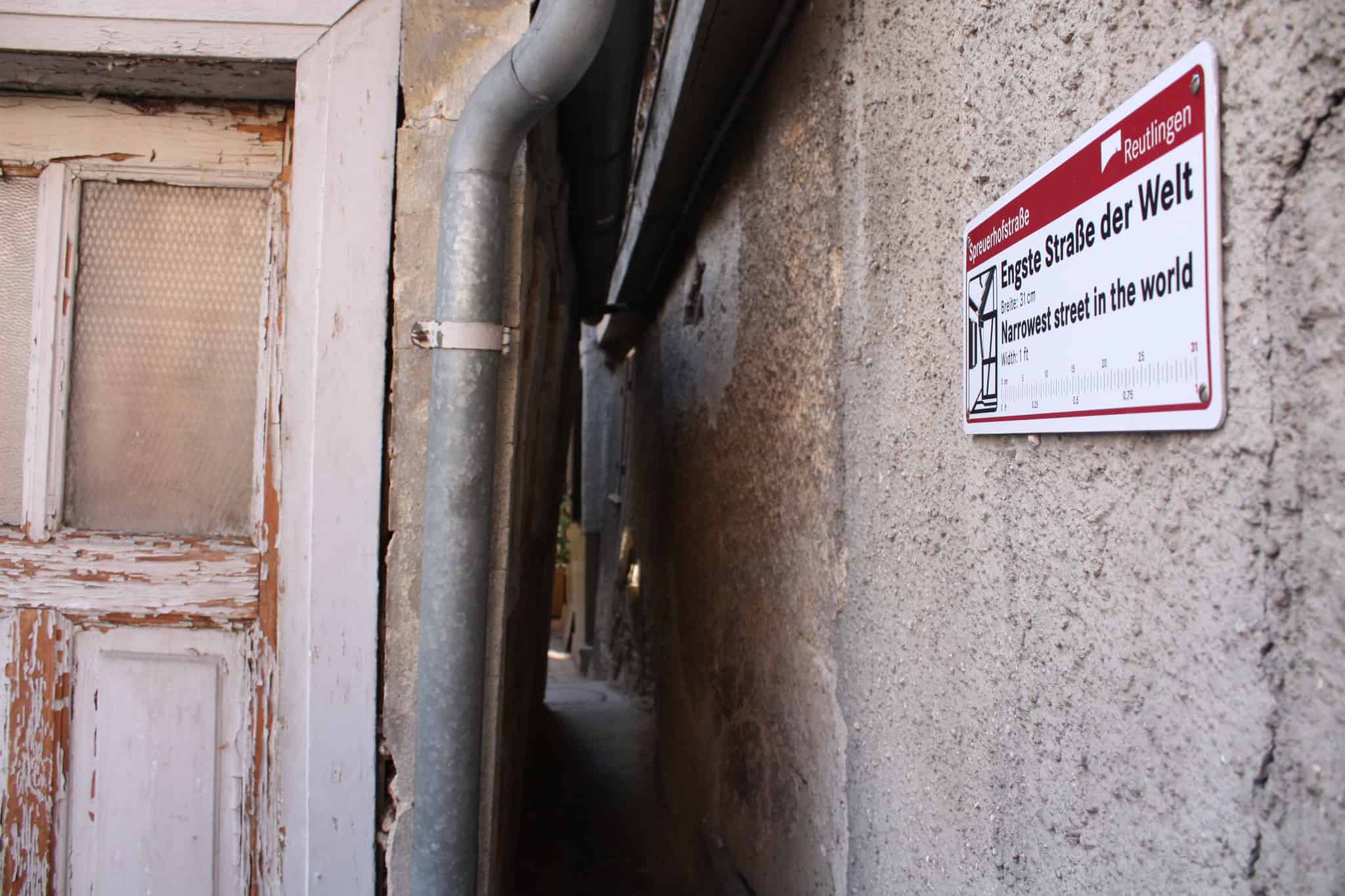
Spreuerhofstraße street holds the Guinness Book of World Records for the world’s narrowest street. The range is 50 centimeters at its widest and 31 centimeters at its narrowest. This street can be found in the German city of Reutlingen and was measured in February of 2006.
Germany has over 300 different varieties of bread.
In Germany, bread is considered to be a significant part of the German culture. Germany also has the largest diversity of bread in the whole world with over 300 varieties and 17,000 bakeries in the country, excluding the 10,000 in-shop bakeries.
These bakeries also produce over 1,200 different kinds of pastries and rolls. Among the variety, the Pumpernickel is considered to be the most popular kind of bread in the country.
Over 400 zoos can be found in Germany.
Germany also boasts over 14 national parks and is considered to have the most zoos in its sixteen states than any other country in the world. These zoos attract millions of visitors each year with Berlin having the most number of visitors. The Berlin zoo is also one of the most species-rich zoos in the world which also holds Germany’s oldest zoological garden.
In Berlin, Germany, the Chancellor’s office is known as the “washing machine”.
Among locals, the office of the German Chancellor is often referred to as the washing machine. This is mainly due to the building’s unique architecture and design which resembles washing machines commonly found in Germany and Switzerland.
Children in Germany are given gifts called Schultüte when they enter school.
Also referred to as the school cone, this gift is often filled with small toys, school supplies, candies, and chocolates. The Schultute is considered as one of the most important parts of a child’s first day of school. This comes from the belief that the idea of attending school for the next 12-13 years will be sweetened by the gift of candy and toys.
Berlin has more bridges than Venice.
The city of Berlin is home to over 1,700 bridges connected by over 180 kilometers of waterways within the city limits. In comparison to Venice that only has around 400 bridges, Berlin easily surpasses it in bridge count.
German law has the right to deny what babies are named.
Germany states that all newborns must be named in such a way that gender can be identified. The name of the child must also not negatively affect the well being of the child. Children also cannot be named after objects, brands, or use last names as first names.

The popular drink Fanta originated in Germany.
Fanta was first created in Germany in the year 1940 during the second world war by the German Coca-Cola company. However, due to the occurring war at the time, there was no way for the drink to be shipped from Germany to the United States.
Originally the drink was made to act as a replacement for the Coca-Cola soda during the American trade embargo of Nazi Germany. Fanta is short for the German word Fantasie which can translate to both fantasy and imagination.
Over 800 million currywurst are consumed annually in Germany.
It is estimated by the Deutsches Currywurst Museum that over 800 million currywurst are consumed annually within the limits of Germany. In Berlin, an average of 70 million is consumed annually. This is also considered to be one of Germany’s most popular street foods.
German continues to be the language with the most native speakers in Europe.
On average, around 95 to 100 million people found in Europe are native German speakers. This population equates to nearly 13.3% of the European population. This makes German the second most spoken native language in Europe after Russian and over the French language.
Germany is also known as the land of poets and thinkers.
Throughout history, Germany has often been dubbed the country of poets and thinkers. This is due to many famous historical figures who have greatly influenced how the world thinks and interacts globally. Among these famous figures include Hoffmann, Heine, Schmidt, and more.
In Germany, running out of fuel on the highway is illegal.
According to traffic regulations in Germany, running out of fuel at the highway is illegal. This is because stopping on the highway due to insufficient amounts of gas is considered a human error. In such a case that this does happen, a fine of 30 to 70 euros may be charged depending on the severity of the situation.
The life expectancy in Germany is 81 years old.
As of 2018, the life expectancy of Germany has lowered to 81 years old. On average German women were expected to live until 83.3 years old while men would be expected to live up to 78.6 years old.
Many famous inventions were made by Germans.
Germany is home to many inventions that have significantly changed the world. Among these famous inventions include the Diesel engine, the bunsen burner, printing presses, contact lenses, and the tape recorder. Germany is also the country where the electron microscope originated from which has led significant advancements in the field of science.
Germany has the most cultural activities and places than any other country in the world.
The German culture has been shaped by major influences from Christian values and philosophies, literature, and art. German culture is also rich in architecture, cuisine, and as well as musical influences. It also shares a rich history with the Roman Empire due to the country once being a part of this empire.
The capital of Germany has been shifted several times throughout history.
Through its history, the country of Germany has had 7 cities shift as its capital. Formerly, these cities include Aachen, Magdeburg, Cologne, Mainz, Trier, Nuremberg, and Speyer. This was mainly due to these cities having great historical significance in Germany’s history.
Germany is the second most popular expat destination on the planet.
The country of Germany is actively trying to attract skilled workers from foreign countries all over the world. Among all the cities found in the country, Aachen is one of the most popular destinations for expats. Other popular cities include Munich, Hamburg, Frankfurt, and Dusseldorf.
Any form of discrimination against those of the LGBTQ community is illegal in Germany.
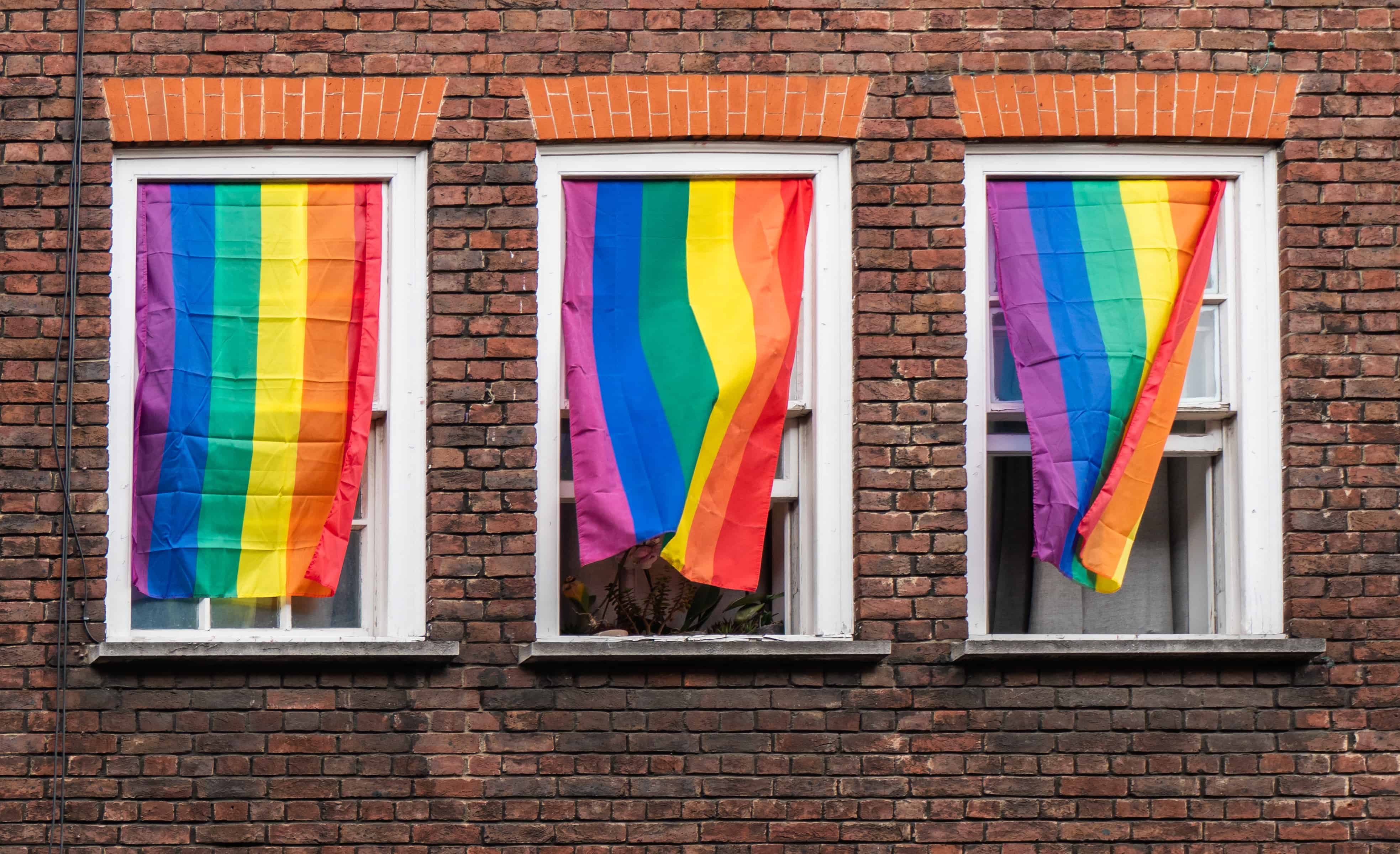
In Germany, the LGBTQ community is protected by law against any form of discrimination in public, in work environments, and private environments. Transgender people may also legally change their gender. As a result, Germany is now considered one of the most gay-friendly countries in the world.
Germany leads in climate and energy policies.
For years, Germany has often considered environmental and climate protection to be of high priority. The country is considered a pioneer in climate policy and has stated that it aims to eliminate all forms of nuclear power use by the year 2020.
By 2030, Germany also plans to have reduced the effect of greenhouse gasses by 55% in comparison to the levels found in 1990.
Two-thirds of the population of Germany are Christian.
Christianity is the main religion observed by German citizens with the majority of its populace identifying with this faith. However, the number of those who actively attend church and practice its traditions is significantly less.
Germany is also one of the world’s biggest book nations.
The country of Germany has one of the world’s biggest book publishers in terms of annual revenue. Germany has around 2,000 publishing houses and as well as over 90,000 published titles that reach the public each year.
Unlike other countries, the concentration of book publishing is not centered in a single city but rather is established evenly in Berlin, Hamburg, Cologne, Frankfurt, and many more cities.
After the first world war, only 1 in 3 women in Germany could find a husband.
This was due to the scarcity of men in the country that was lost to the war. During this time, a large number of women were also recruited into several jobs due to the lack of manpower that the war had caused.
Until 2009, several schools were shut down due to a scarcity in children.
During this time, many schools in the eastern state of Germany were being shut down due to the lack of attending students. Due to this, it could not keep the school in business as the lacking number of students would not be able to pay to keep the operations running.
The hamburger gets its name from the city of Hamburg in Germany.
This sandwich is known worldwide as a delicious combination of meat, bread, and vegetables. However, what many do not know is that the word hamburger was inspired by the Hamburg steak which local German immigrants were familiar with. While many believe that the hamburger originated in Germany, it is still commonly associated with the United States of America.
An average of 15 bombs a day from the second world war are still being found in Germany.
In Germany, bombs left over from the second world war are still being found each day. On average, around 15 bombs are found and disarmed each day.
To avoid accidents of any possible explosion in the country of Germany, any construction project must begin with a thorough search of the ground. Certification is also needed to ensure there are no bombs hidden underneath that could cause harm to the foundation of the building.
Chinese Checkers was first invented in Germany.
The game was first introduced by Germans in 1892 in Germany. Despite its name, the term comes from Stern-Halma which is a variation of an older American game called Halma. Unlike Chinese Chess, Chinese Checkers has no relation to Asia, to China, or even the game of Chinese Chess.
In Germany, popcorn in the cinema is sweet rather than salty.
Germans commonly enjoy a day at the cinema with popcorn coated with sugar rather than the typical salt and butter combination. Sweet popcorn is also commonly eaten in stadiums and during the Oktoberfest celebrations. Sweet popcorn is also found more often in grocery stores, and candy shops, unlike salted popcorn.

Around 60% of YouTube’s most popular videos are blocked in Germany.
This is due to a dispute between the video-sharing platforms YouTube and GEMA regarding liable damages for hosting copyright videos without the holder’s permission. As a result, music videos from major labels and artists on YouTube are geo-blocked in Germany.
Removing a cat’s claws is illegal in Germany.
In Germany, declawing the claws of cats is considered a form of amputation which can cause pain for them later in their life. This law is observed to protect animals and allow them to live healthier and safer lives.
Germany has one of the lowest birth rates in the world.
In 2015, studies showed that Germany has the lowest birth rate in Europe in recent years. The study also shows that out of every 1000 residents only 8.2 children were born on average. As a result, this also led to Germany’s labor force depleting steadily as well since the end of the second world war.
Around 10% of Germany’s population is immune to HIV.
Biologists have discovered that a link between plagues originating from the Middle Ages and the probability of contracting HIV. Scientists state that there is a cell mutation known as CCR5-delta 32 that prevents HIV cells from entering their body.
This gene is more commonly found in Europe, which 10% of the population has. This is why a small population of those in Germany also cannot absorb the virus and thus making them immune.
Radioactive boars continue to roam around Germany.
In 1986, a nuclear accident in Chernobyl caused a disastrous impact on life in Ukraine and nearby landscapes. This slowly spread to other countries over the years due to the wind and rain carrying away radioactive deposits.
As a result of this incident, wild radioactive boars were discovered roaming around Germany. This made consumption of boars unsafe for humans and it should be avoided at all costs for safety concerns.
Nursing homes in Germany often have fake bus stops.
In Germany, these fake bus stops were built for nursing home residents with dementia who often try to run away. These bus stops are located around the corner of nursing homes and often in the garden of the facility as well.
This concept was first used in 2009 and has since been considered a great strategy to reduce the number of wandering elderly in the city.
German soldiers in the military can disobey orders if it violates human dignity.
The German military manual states that an order of any kind is not binding if it is not of any use of service or cannot be executed. If a German soldier is ordered to harm another comrade or an individual in a way that deprives them of human dignity then it should not be followed.
Coffee pods are banned in government-run buildings in Hamburg, Germany.
This rule is implemented as an effort of reducing waste and energy consumption to better look after our environments. Hamburg is the first city to ban this use and also believed to be the first city in the world to implement this rule.
It is illegal to tune a piano at midnight in Germany.
In Germany, people value silence and resting times. As a common courtesy, Germans will often be considerate and not create any form of disturbing noise or interruption during the night. Otherwise, a penalty can be filed for you to pay for disobeying this rule.
McDonald’s in Germany serves beer.
Germany is one of the few countries where both locals and tourists are legally allowed to buy and consume alcoholic beverages at fast-food restaurants. In the city of Munich, beer has been on McDonald’s menu since 1971.
This location is also where the first McDonald’s in Germany was established.
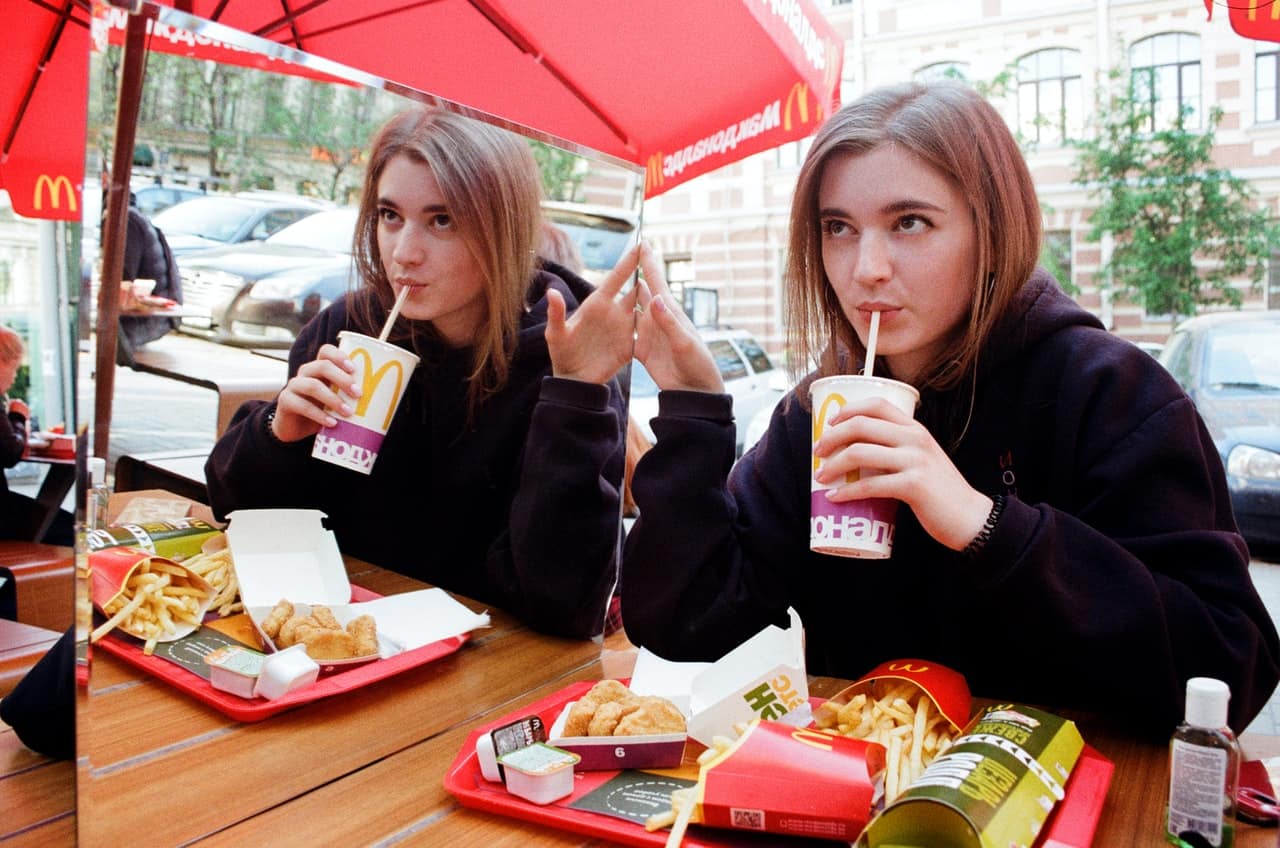
German citizens can travel to over 100 countries without a visa.
Those holding a German passport can travel to a total of 188 countries without a Visa or Visa on arrival as of 2019. This gives German passport holders a wide range of travel freedom with the number of countries they can visit without a visa.
Urns cannot be kept inside German homes.
In Germany, there is a rule that the ashes of a loved one cannot be kept in an urn in your household. This must be turned over to a cemetery and not with the living. Only two German states are exempt from this rule which are Bremen and North Rhine-Westphalia.
There is an old German legend that states kissing a donkey will cure a toothache.
In the past, people in Germany believed that kissing a donkey will magically heal your toothache. This strange tradition continues to remain in German folklore over the years and the tradition is still being passed on today.
The oldest brewery in Germany has been in operation since the year 1040.
The oldest brewery in Germany is the Weihenstephan Abbey which is also known as Kloster Weihenstephan. This brewery was originally a Benedictine monastery located in Weihenstephan which is now a part of the Freising district in Bavaria, Germany. The brewery has been located in this area since 1040 and has been in continuous operation since then.
Cash is the main form of accepted payment in Germany.
In Germany, many prefer to pay in cash rather than with a credit card making it the most popular form of payment in the country. In 2017, a statistical study found that all purchases and transactions in Germany are 74% cash payments, with the remaining as some other payment transaction.
Was this page helpful?
Our commitment to delivering trustworthy and engaging content is at the heart of what we do. Each fact on our site is contributed by real users like you, bringing a wealth of diverse insights and information. To ensure the highest standards of accuracy and reliability, our dedicated editors meticulously review each submission. This process guarantees that the facts we share are not only fascinating but also credible. Trust in our commitment to quality and authenticity as you explore and learn with us.
